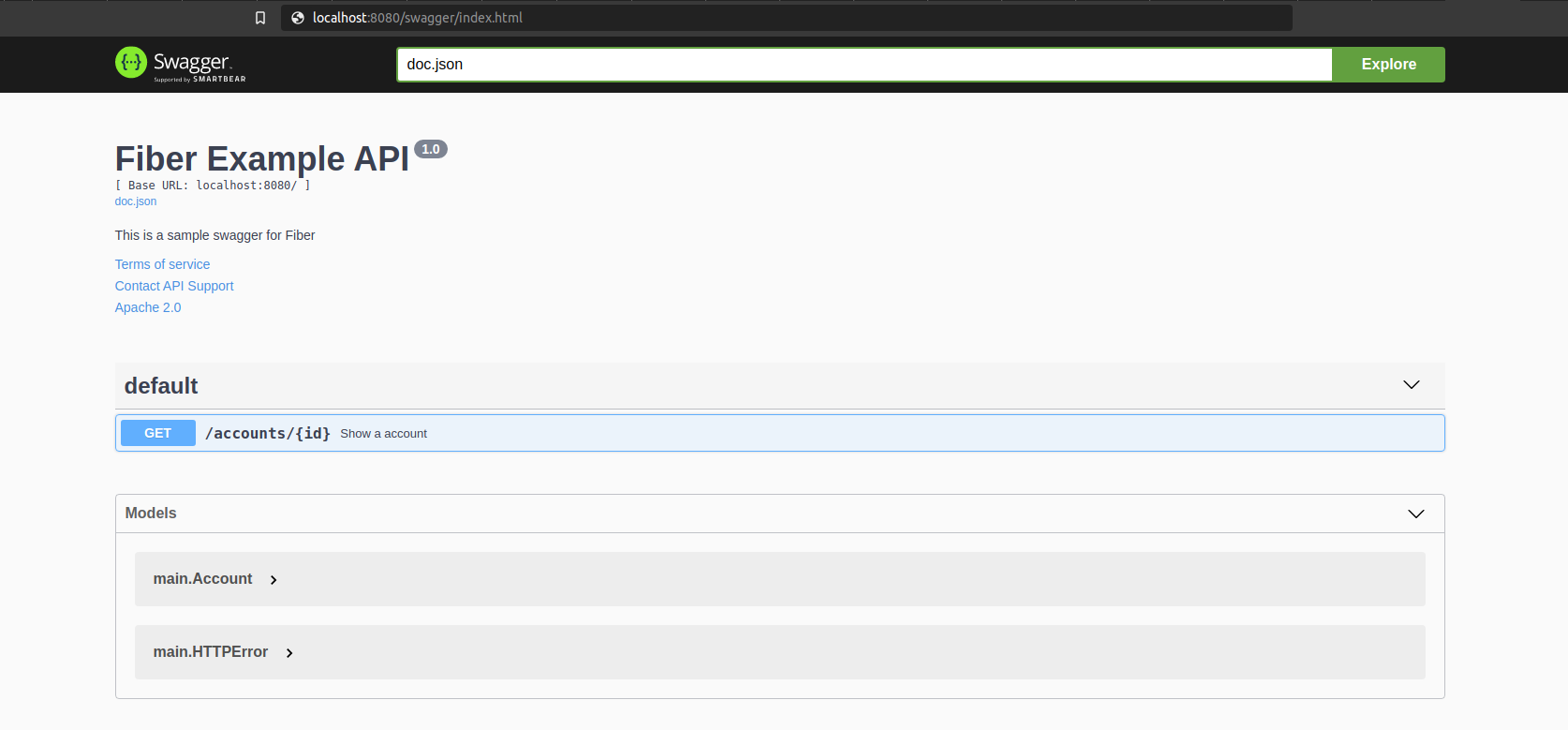fiber middleware to automatically generate RESTful API documentation with Swagger 2.0.
- Add comments to your API source code, See Declarative Comments Format.
- Download Swag for Go by using:
$ go get -u github.com/swaggo/swag/cmd/swag- Run the Swag in your Go project root folder which contains
main.gofile, Swag will parse comments and generate required files(docsfolder anddocs/doc.go).
$ swag init- Download fiber-swagger by using:
$ go get -u github.com/arsmn/fiber-swagger/v2And import following in your code:
import "github.com/arsmn/fiber-swagger/v2" // fiber-swagger middlewarepackage main
import (
"github.com/gofiber/fiber/v2"
"github.com/arsmn/fiber-swagger/v2"
_ "github.com/arsmn/fiber-swagger/v2/example/docs" // docs is generated by Swag CLI, you have to import it.
)
// @title Fiber Example API
// @version 1.0
// @description This is a sample swagger for Fiber
// @termsOfService http://swagger.io/terms/
// @contact.name API Support
// @contact.email fiber@swagger.io
// @license.name Apache 2.0
// @license.url http://www.apache.org/licenses/LICENSE-2.0.html
// @host localhost:8080
// @BasePath /
func main() {
app := fiber.New()
app.Get("/swagger/*", swagger.Handler) // default
app.Get("/swagger/*", swagger.New(swagger.Config{ // custom
URL: "http://example.com/doc.json",
DeepLinking: false,
}))
app.Listen(":8080")
}- Run it, and browser to http://localhost:8080/swagger, you can see Swagger 2.0 Api documents.
